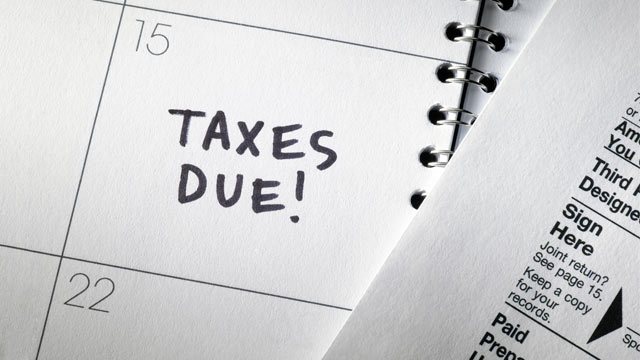Lagos State recently moved to ensure that the digital economy — a sub-sector of the economy — contributes ₦200 billion to its ₦5 trillion Internally Generated Revenue (IGR) target.
The government announced the implementation of a Resident Global Digital Citizen Tax management system which will target remote workers, digital influencers, gig workers, freelancers, and digital platform owners. The announcement stated that the government will collect this revenue using digital solutions.
This development has generated certain questions on who the subjects of this new tax regime are, how the state intends to make the deductions, whether this has been successfully done anywhere else in Africa, and what the state government plans to do with the revenue generated.
This article addresses these questions mostly based on the announcement and what has been generally considered best practices in other parts of the world.
Who will be affected?
Essentially, anyone involved in the digital economy, whether an individual or a business, will be impacted by this development. The groups can be categorised as follows:
Individuals
- Remote workers: Individuals employed by international companies and earning foreign currency but residing in Lagos State.
- Freelancers: Self-employed individuals offering services digitally via freelance websites like Fiverr, Upwork, and their alternatives.
- Gig workers/shared economy operators: Individuals who earn income through digital platforms, including ride-sharing or ride-hailing platforms like Uber and Bolt, home rental platforms/accommodation-sharing platforms like Airbnb, or food delivery platforms.
- Influencers: Individuals who earn income through social media platforms or content creation.
Businesses
Revenue generation from businesses will be through accreditation and licensing.
- Platform owners: Companies that operate online platforms for various purposes, including e-commerce, ride-sharing, and social media.
- E-commerce operators: Businesses conducting sales of goods or services online.
- Shared economy platforms: Companies facilitating the sharing of assets or services (e.g., Uber and Airbnb).
- Online education platforms: Platforms offering educational courses or programmes online.
- Marketplaces: Online platforms connecting buyers and sellers.
- Food delivery platforms: Platforms connecting customers with food delivery services.
How will the government identify remote workers?
Recognising remote workers, particularly those who do not self-identify, can be challenging for the Lagos state government.
While certain categories like influencers, gig workers, and shared economy operators might be easier to track due to their platform-based earnings, remote workers employed by foreign companies present a more complex scenario.
One could argue that many of the options available to the government to identify these people raise privacy and data protection questions. The government is likely to hit a roadblock if they do not secure the cooperation of tech companies and if they can’t access or analyse the required data.
- Tracking foreign currency (FX) inflows into personal accounts by partnering with financial institutions.
- Leveraging social media to identify individuals engaged in remote work activities through their online behaviour.
- Collaboration with tech payment platforms, especially those facilitating cross-border transactions.
Is the ₦200 billion target realistic?
The target is quite ambitious. But realistic? You be the judge. The outcome hinges largely on how effectively this is implemented, which is also a factor of accurate identification and compliance.
Based on available information, the Lagos State Government claims its digital economy is experiencing significant growth, with estimates suggesting a 20-25% annual growth rate.
An Economic and Financial Review (PDF) published by The Central Bank of Nigeria (CBN) in 2022 projects that the nation’s digital economy will rake in US$18.30 billion in revenues by 2026. Lagos is a major hub, and even though the exact contribution from its residents is not well-documented, the government estimates there are two million people in the digital economy.
Since a significant portion of the digital economy operates informally, being able to bring them into the tax net could yield substantial revenue.
How will tax deductions be made?
Income-earning Nigerians, including remote workers, are to pay a direct tax called Personal Income Tax. This tax can be paid through deduction from the source (Pay-As-You-Earn), especially for people in paid employment, or direct payment to the relevant authorities by self-employed people. Not paying is an offence under income tax laws like the Finance Act 2021.
While the specifics of Resident Global Digital Citizen Tax deductions remain unclear, it is likely that deductions will be automated through financial institutions, where a percentage of FX inflows could be withheld as tax. This would require agreements with banks and digital payment platforms.
Have other African countries implemented similar taxes?
A few African nations, including South Africa and Kenya, have taxed the digital economy with Digital Services Tax (DST), but it’s mainly targeted at global tech companies. However, the implementation has been impeded by several factors, including defining the tax base, enforcement and compliance, and cooperation from tech companies.
How will the government use the revenue?
- Digitise government services and data monetisation.
- Establish Lagos State Fintech Hub.
- Build a software development centre.
- Establish Lagos State Digital Economy Acceleration Hub.
- Build Lagos State advertisement network.
- Explore blockchain and tokenisation agenda.
- Collaborate with the federal government on DST.
Move the conversation forward. What’s your take? Is the proposed tax on remote workers in Lagos feasible?











